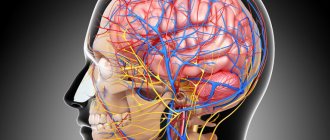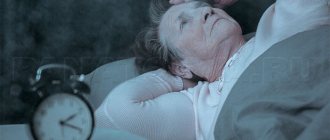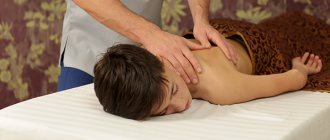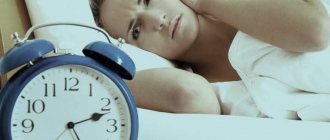Now I am the most unhappy person alive. If what I feel is distributed evenly among all representatives of humanity, then there will not be a single joyful face left on the entire earth. I don't know if I'll ever get better, I'm terrified that this might not happen. It is impossible to live in the state I am in now. I must either die or get better.
Abraham Lincoln
Every person experiences grief and moments of sadness from time to time. And this is a normal reaction to disappointments, life difficulties and failures. Many people use the word "depression" to describe these types of feelings and reactions, but depression is much more than just feeling sad and depressed.
How depression manifests itself
The main manifestation of depression is a persistent decrease in mood, the cause of which most often cannot be explained. The depressed mood itself is different from the grief that you experience during various misfortunes. A person suffering from depression usually cannot formulate his experiences due to the unusualness of the sensations, their difference from everything that he had previously experienced in life. Such people often resort to comparisons: “there is heaviness, stone, darkness in my soul”, “everything has lost its meaning, joy”, “life has become difficult”, “I feel as if I had a super-severe flu.”
Do you need to take antidepressants
Pharmacotherapy helps some people relieve or alleviate the symptoms of depression, but complete cure with medication is often not achieved. In addition, the drugs have a number of side effects. Knowing the mechanism of action and side effects of antidepressants will help you make your own informed decision about whether these drugs are right for you as a treatment for depression.
Effective treatment for depression often includes some form of psychotherapy. Psychotherapy allows you to look at and study depression from different angles. In addition, what you learn during therapy gives you mindfulness skills and a deep understanding of the situation, which prevents depression from returning.
Some types of psychotherapy focus on teaching the patient a set of specific practical techniques or how to reframe negative thoughts and use behavioral skills to combat depression. Sometimes simply connecting with a professional who understands you is enough to change your condition for the better. Psychotherapy helps you work with the root cause or causes of your depression, helping you understand why you feel a certain way and what you can do or have done to stay healthy.
What are the causes of depression?
The cause of depression is inherited biochemical disorders at the level of the central nervous system. And also certain personality types: hypersensitive, scrupulous, pedantic, overly sensitive to failures, impressionable, vulnerable people are more susceptible to depression than others. We can talk about a risk group for depression: women suffer from depression much more often than men. If we talk about age, the lower limit for this group is 18-20 years old, the upper limit is 35-40. There is also a special form of depression that begins during menopause.
What to do if you have insomnia due to neuroses?
When treating insomnia, a neurologist must first of all identify the true cause of the development of the pathological condition. If insomnia appears against the background of neurosis, then it is necessary to treat the underlying disease; Without eliminating the cause, fighting individual symptoms makes no sense. For nervous insomnia, treatment usually requires quite a long complex therapy. In the most severe cases, the patient is prescribed pharmacological drugs - sleeping pills and sedatives (sedatives) during the treatment of insomnia due to neuroses. Therapy for neuroses may also require taking tranquilizers. It is often possible to do without taking medications. Effective treatment of nervous system disorders is possible through group or individual psychotherapy sessions. The goal of psychotherapy is to change the patient’s attitude towards the environment and weaken the influence of traumatic factors. If the patient suffers from insomnia due to neurosis, treatment involves compliance with the so-called. sleep hygiene.
Basic rules of sleep hygiene:
- you need to go to bed and get up at the same time - both on weekdays and on weekends;
- You should not sleep during the day;
- It is advisable to eliminate or minimize alcohol consumption;
- if there is a nicotine addiction, it is not recommended to smoke in the evening;
- Before going to bed, you should not consume drinks that have a tonic or stimulating effect (in particular, tea and coffee);
- mental stress in the evening hours should be minimized;
- You can’t watch TV until late;
- before bedtime, relaxing water treatments are recommended (bath or shower at the most comfortable temperature);
- In the evening, gymnastics or a walk in the fresh air is recommended.
The text was checked by expert doctors: Head of the socio-psychological service of the Alkoklinik MC, psychologist Yu.P. Baranova, L.A. Serova, a psychiatrist-narcologist.
CAN'T FIND THE ANSWER?
Consult a specialist
Or call: +7 (495) 798-30-80
Call! We work around the clock!
Is it possible to diagnose yourself?
Recognizing depression is not an easy task, but you can suspect the disease based on a combination of the following factors:
- diurnal mood swings with worsening in the first half of the day, especially in the morning, and improvement in the evening;
- a sharp decrease in mood is combined with inhibition of movements and thoughts;
- persistent, causeless decrease in mood over a period of weeks or months or periodically in the fall and spring;
- cases of prolonged, causeless depressed mood, if there have been suicide attempts in the family by close relatives, especially on the maternal side, or periodic situations of binge drinking among close relatives;
Their appearance is characteristic: a bent posture, people look much older than their years, they have dry, flaky skin, their hair splits, falls out, often turns grey, and their nails are brittle.
Manifestations of sleep disorders
Sleep disorders are considered if a person has the following symptoms:
- The patient begins to feel a lack of sleep.
- A person is unable to fall asleep at his usual time, while experiencing fear, anxiety, or cannot get rid of obsessive ideas and thoughts (presomnia disorders).
- The sleep is superficial, shallow, the patient often wakes up (intrasomnia disorders).
- The patient falls asleep normally, but wakes up much earlier than usual, and then cannot fall asleep normally again or falls into a restless sleep that brings neither satisfaction nor rest (postsomnia disorders).
- After waking up, a person does not feel rested and alert.
- Pathological drowsiness appears during the daytime.
- A person feels tired all the time.
- He experiences anxiety before going to bed.
If depression is combined with a somatic illness, should you see a psychotherapist?
Yes. It should be noted that depression can manifest itself in various “masks”, for example: pain of various types, breathing problems (resembling asthma), binges, attacks of so-called vegetative-vascular dystonia. Diagnosis, in this case, can be helped by the mood swings characteristic of typical depression during the day, as well as other manifestations, such as rapid heartbeat, dilated pupils, and dry skin. Lack of appetite and constipation, also characteristic of depression, can be fatal as they last for several months.
Treatment
Treatment of sleep disorders is carried out in two ways - psychotherapeutic and medication.
First, you need to eliminate all factors that have a negative impact on a person’s sleep: pain, medication, depression.
You need to train yourself to wake up and fall asleep at a certain time.
The patient should try to limit his daily sleep to the amount of time before the onset of the disorder.
It is worth excluding the use of substances that have a stimulating or depressing effect on the brain and central nervous system.
You should not drink alcoholic beverages after 17.00 or shortly before bedtime.
If possible, the patient is advised to exclude daytime naps.
To improve your well-being in the morning and give your body a boost of energy, you need to do physical exercise.
Try to create a calm, relaxing environment before going to bed - read a book, listen to a radio program, do meditation or relaxation.
Eating should be carried out according to a strict schedule, and, of course, it should not be plentiful immediately before bedtime.
In some cases, psychotherapy sessions are recommended.
Is depression curable?
Yes, but it won't happen overnight. Depression can be successfully treated in most cases. Depending on the type of depression and the severity of the disease, treatment and the time required for recovery can vary greatly. Severe cases of depression are treated in psychiatric clinics with antidepressants and tranquilizers. Moderately severe and mild depression is treated with a combination of antidepressants and various methods of psychotherapy or psychotherapy alone. In difficult cases, complete relief from depression is possible within six months to a year. If medications are used in treatment, the time frame is reduced to 3-5 months. There is also ultra-short psychotherapy, which allows you to significantly reduce the symptoms of depression in 5-10 meetings with a psychotherapist (psychotherapeutic sessions).
PsyAndNeuro.ru
Depression is projected to be the largest contributor to the burden of disease by 2030, with a prevalence of approximately 20% and a relapse rate of 75%. Additionally, even with pharmacotherapy, only about 30% of adults with depression achieve remission. The National Academy of Medicine has called for the active development, evaluation, and implementation of prevention strategies focused on depression [1]. At the same time, to create such a strategy, it is first necessary to identify the biobehavioral factors that carry the greatest risk.
Sleep disorders (i.e. insomnia) occur in approximately 15% of the population, with up to 70% in patients seeking non-specialized medical care [2]. Among patients with depression, sleep disturbances are one of the most common complaints and often persist as a potential predictor of relapse of depression [2]. Because the use of antidepressants does not reduce this risk [3], interventions that target sleep disturbances are necessary to prevent relapse of depression [3].
However, not all people with sleep problems develop an episode of depression, raising the possibility that other factors along with insomnia contribute to clinically important depressive symptoms. Moreover, it is unknown how exactly insomnia becomes a biological and affective risk factor for depression, which is critical for identifying molecular targets of pharmacological interventions and improving treatments for insomnia that target the affective response.
Real-world empirical, prospective, and experimental evidence shows that sleep disturbances are associated with increased plasma concentrations of systemic markers of inflammation, such as C-reactive protein and interleukin-6 [4], which have been found to be predictors of depression. Likewise, significant fluctuations in sleep duration, such as sleeping less than 6 hours or more than 8 hours per night, lead to increased levels of systemic inflammation4. Moreover, sleep disruption has been experimentally found to induce activation of biological inflammation at various levels, including increased systemic inflammation; monocyte production of pro-inflammatory cytokines; activation of nuclear factor (NF)-κB transcription, which controls the pathological signal transducer and transcription activator pathway; transcription of interleukin-6 and tumor necrosis factor mRNA; and expression of pro-inflammatory transcriptomes. Interestingly, this immune activation in response to sleep disturbances is strongest in young people, and in women compared to men, consistent with epidemiological evidence showing that young women have the greatest risk of depression.
Given that inflammation can cause profound behavioral changes that include the emergence of depressive symptoms such as low mood, anhedonia, fatigue, psychomotor inhibition and socio-behavioral withdrawal [5,7,8], the inflammatory biotype under the influence of sleep disturbances may be a key phenomenon driving the pathogenesis of depression and relapse. Moreover, sleep disorders and depression overlap with severe medical diseases that have an inflammatory basis, such as asthma, rheumatoid arthritis and cardiovascular diseases.
Inflammation is not static, but rather exhibits dynamic variability, due in part to many contributing factors, including specific disease conditions (ie, infections) and psychosocial factors (ie, interpersonal stress). Such acute increases in inflammatory activity may explain the prospective association between these multilevel processes and the subsequent episode of depression.
For example, in controlled experimental models that mimic the effects of infections, inflammatory activation induces an increase in depressive mood, which correlates with activation of brain regions that play a role in the pathophysiology of major depressive disorder, and with a decrease in reward or anhedonia processing, which correlates with a decrease in activity of the ventral striatum. [5].
In addition, such experimental strategies support the “two-hit” model of depression, in which sleep disturbances act as a vulnerable contributor to increased severity of depressive symptoms following exposure to inflammatory symptoms,6 and clinical considerations suggest that the risk of depression is increased when sleep disturbances co-occur with inflammation. such as infection or psychosocial stress. Conversely, there is evidence that inflammation itself may act as a vulnerability factor and increase the risk of depression when a person with an inflammatory biotype experiences sleep disturbances.
If insomnia is associated with inflammation and depression, and if inflammation in turn predicts depressive symptomatology, the hypothesis that treating sleep disorders may improve inflammation and reduce the risk of depression is compelling. Prospective evidence supports this possibility.
Among the various treatment options for insomnia, cognitive behavioral therapy for insomnia (CBT-I) is recognized as the gold standard, with effects that are consistent and longer lasting than pharmacological therapy. In randomized controlled trials, CBT-I shows a significant positive effect on insomnia outcomes, which are also associated with long-term (i.e. one year) and large (>50%) reductions in C-reactive protein levels, as well as a reduction in the proportion of patients with insomnia patients whose C-reactive protein levels reach levels associated with high risk (>3.0 mg/dl) [6]. Importantly, these improvements in insomnia and inflammation coincided with reductions in depressive symptoms.
In addition, mind-body interventions such as tai chi (i.e., movement meditation) and clear-mind meditation, which are known to influence stress response mechanisms, have been found to be as effective as CBT-I in treating insomnia9. and also help normalize the function of the insomnia-associated inflammatory leukocyte transcriptional profile (i.e., genes regulated by pro-inflammatory factors of the NF-κB/Rel group) and deactivate cellular inflammation, with a greater effect than with CBT-I treatment.
While antagonists of endogenous inflammation appear to reduce depressive symptoms, at least in those patients with depression for whom the inflammatory subtype of the disease has been demonstrated, such treatment is expensive and carries risks of side effects that are not observed. in psychotherapeutic interventions, making these interventions optimal for community-wide scaling to improve insomnia outcomes and reduce inflammation, as well as potentially prevent depression.
Insomnia and inflammation deliver a concerted double whammy, creating a population particularly vulnerable to the onset and/or relapse of depression. Treatments that target the inflammatory biotype and/or insomnia-promoting behavioral phenotype are promising strategies for preventing the onset of depression.
Translation into Russian was organized by the Council of Young Scientists of the Russian Society of Psychiatrists with the support of the World Psychiatric Association.
Author of the translation: Proskurina D.S.
Editor: Ph.D. Potanin S.S.
Home article
Sources:
- Institute for Medicine. Preventing mental, emotional, and behavioral disorders among young people: progress and possibilities. Washington: National Academy Press, 2009.
- Irwin MR. Annu Rev Psychol 2015;66:143-72.
- Cho HJ, Lavretsky H, Olmstead R et al. Am J Psychiatry 2008;165:1543-50.
- Irwin MR, Olmstead R, Carroll JE. Biol Psychiatry 2016;80:40-52.
- Slavich GM, Irwin MR. Psychol Bull 2014;140:774-815.
- Irwin MR, Opp MR. Neuropsychopharmacology 2017;42:129-55.
- Dantzer R Biol Psychiatry 2012;71:4-5.
- Irwin MR, Cole SW. Nature Rev Immunol 2011;11:625-32.
- Irwin MR, Olmstead R, Carrillo C et al. J Clin Oncol 2017;35:2656-65.









